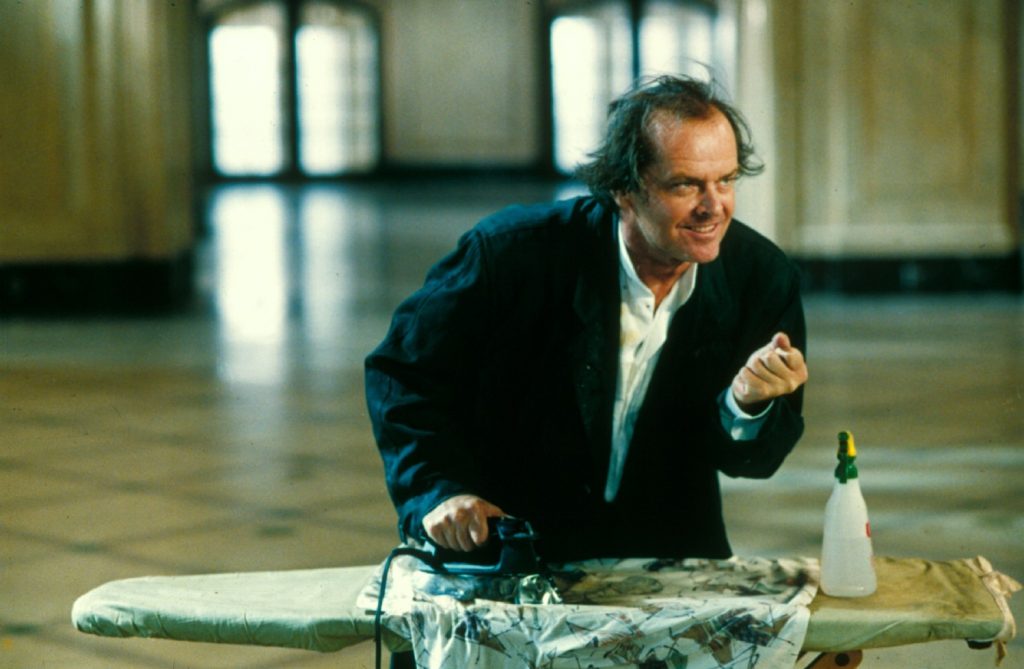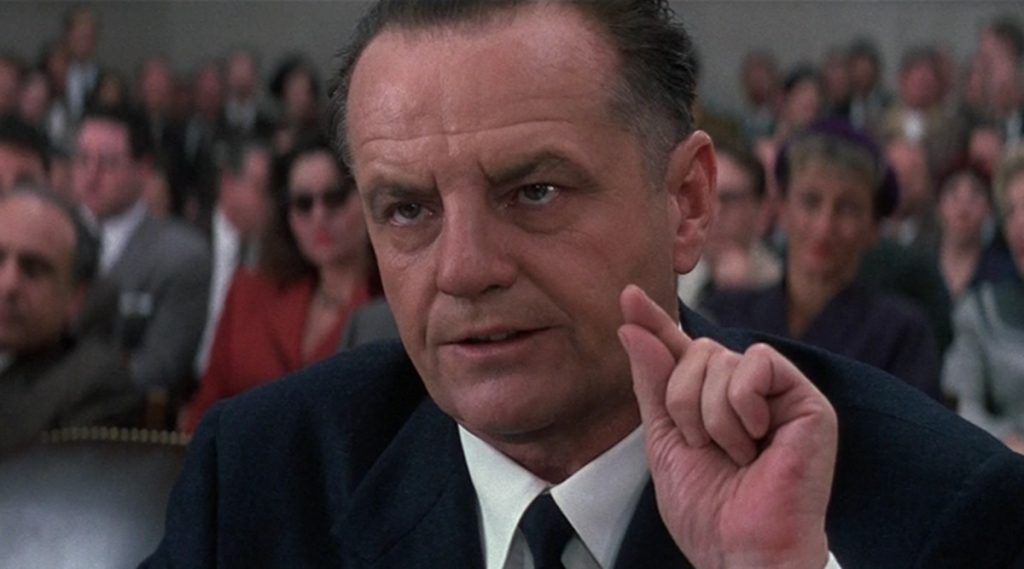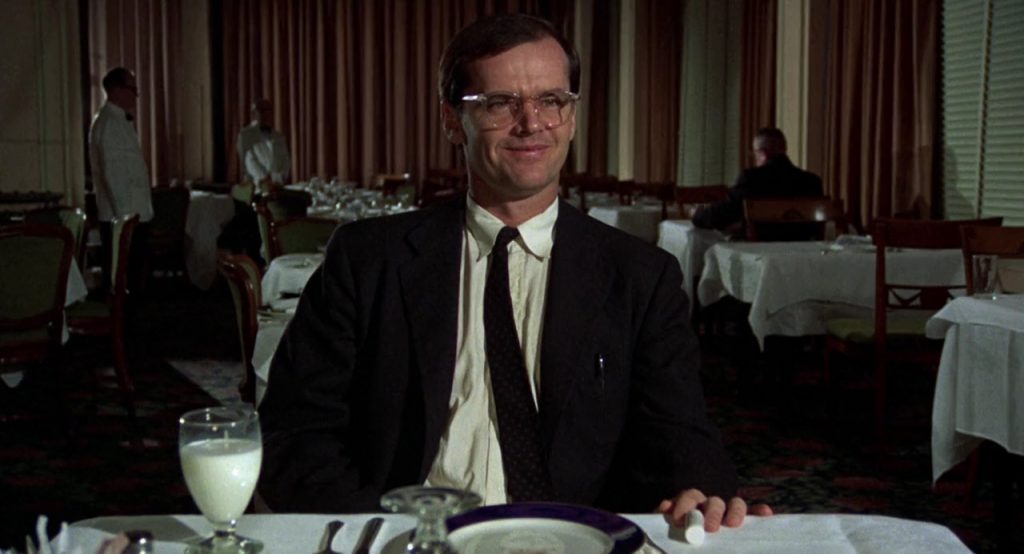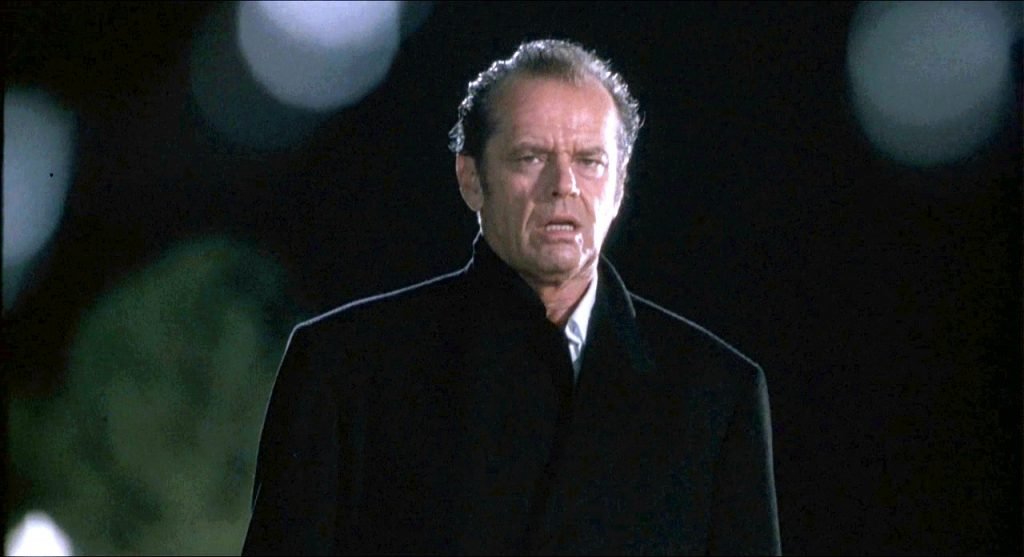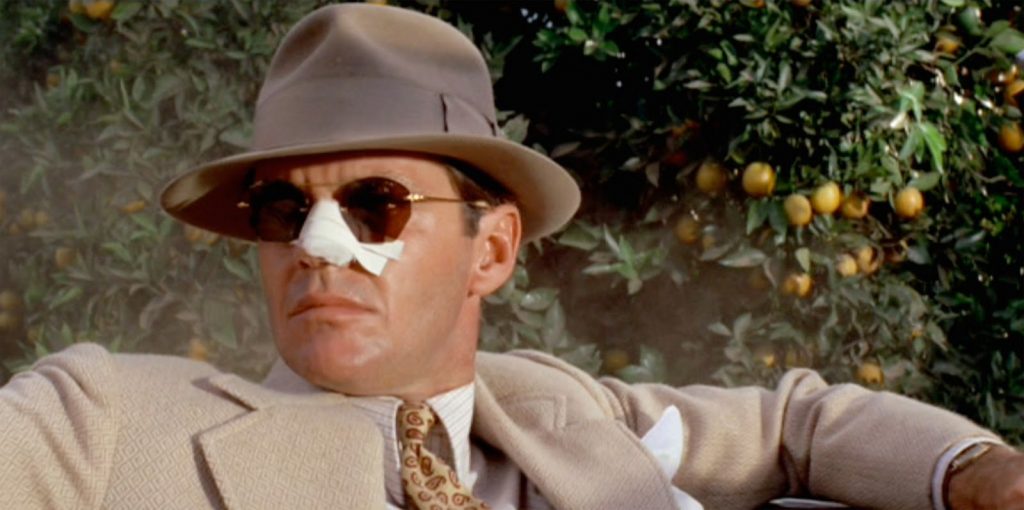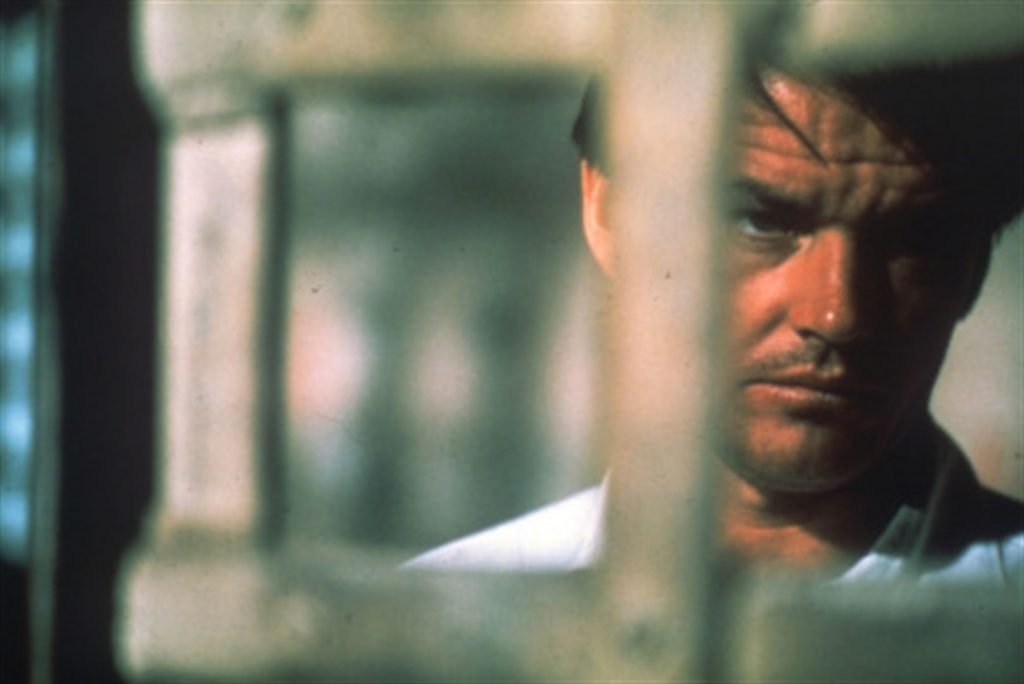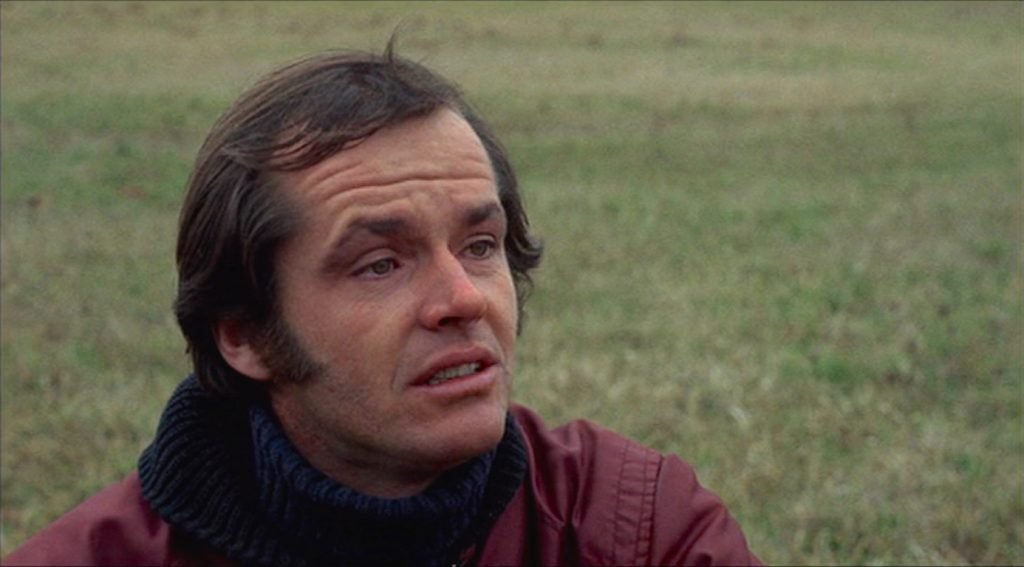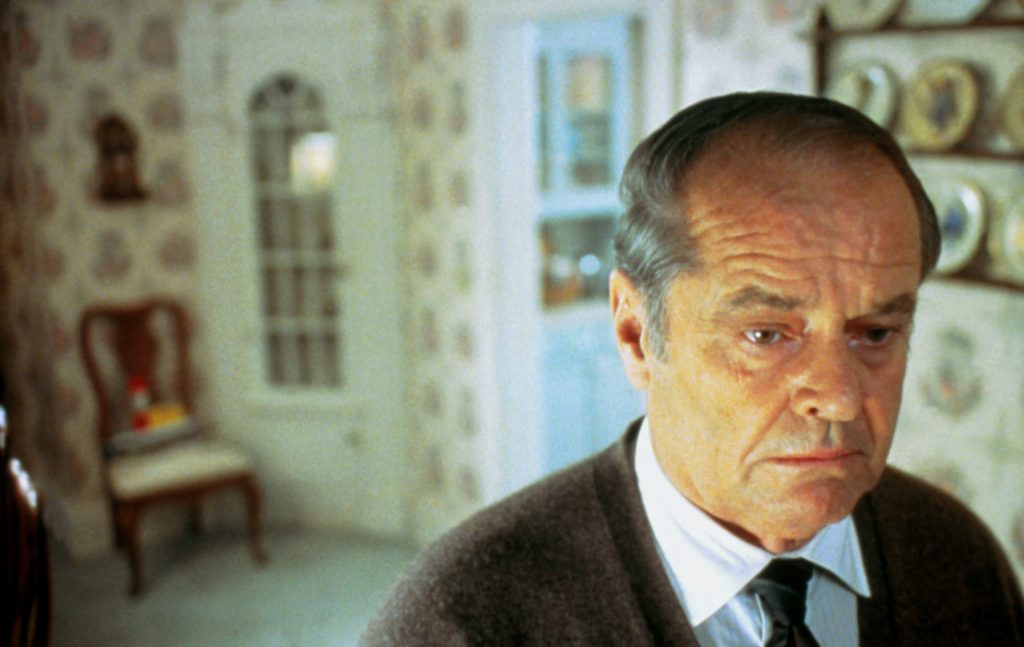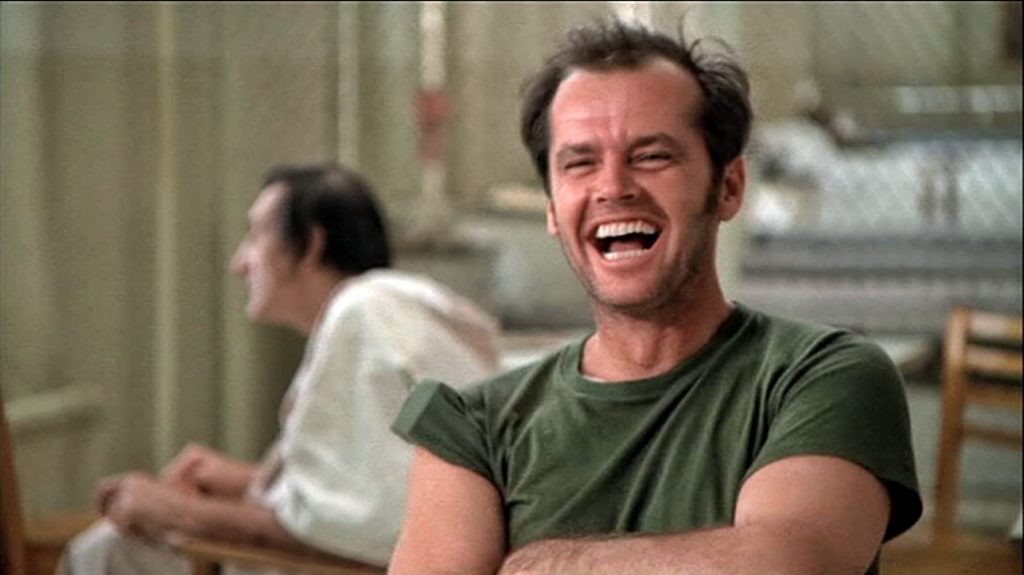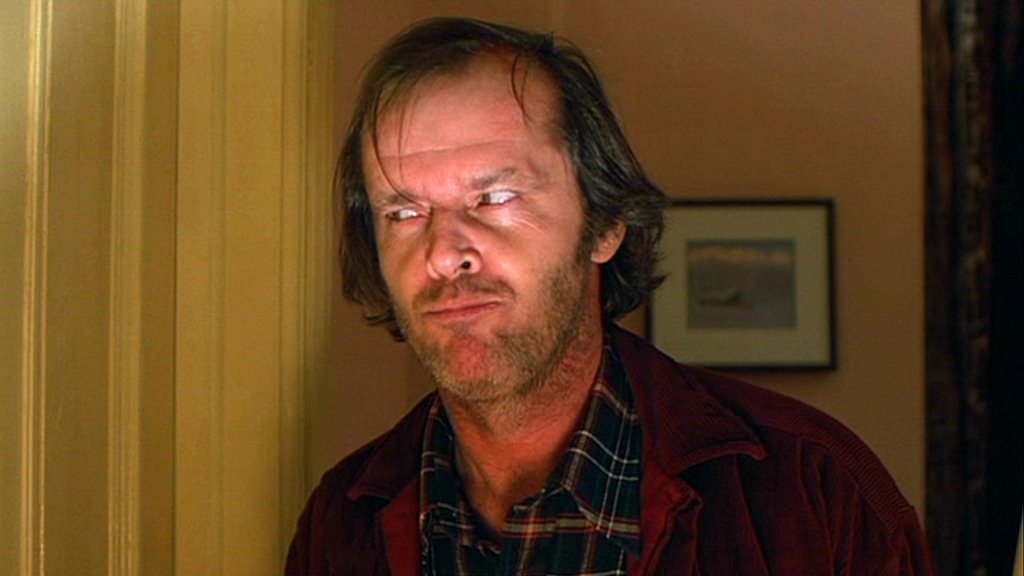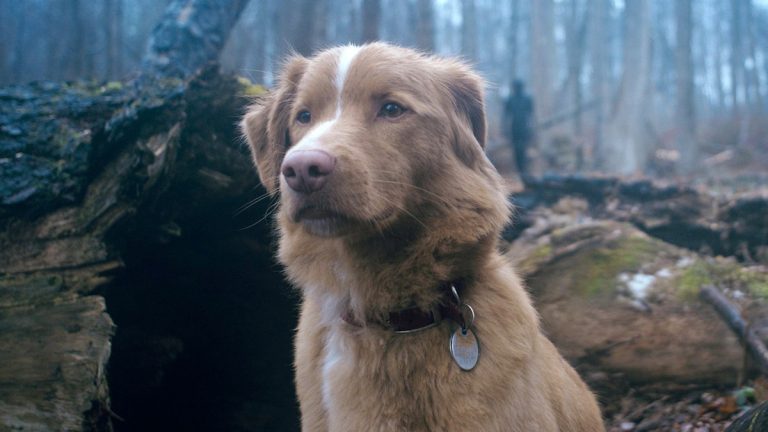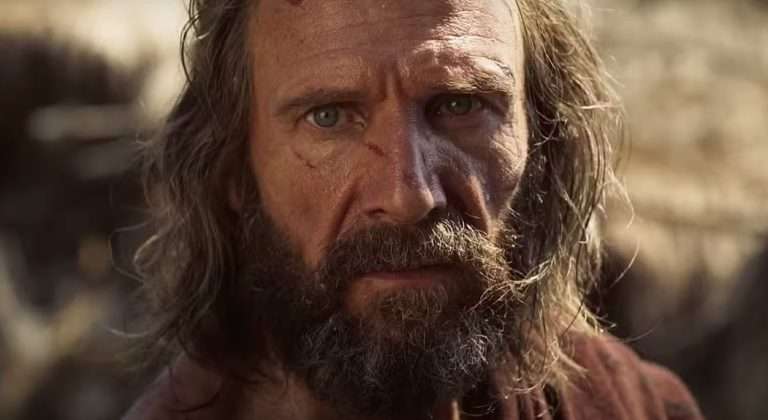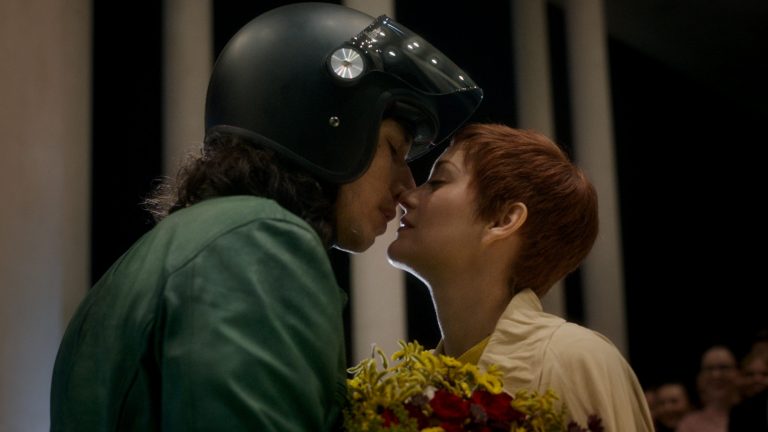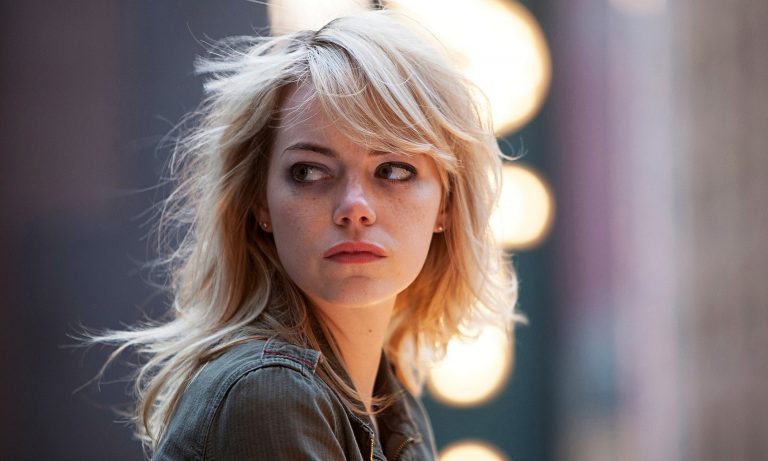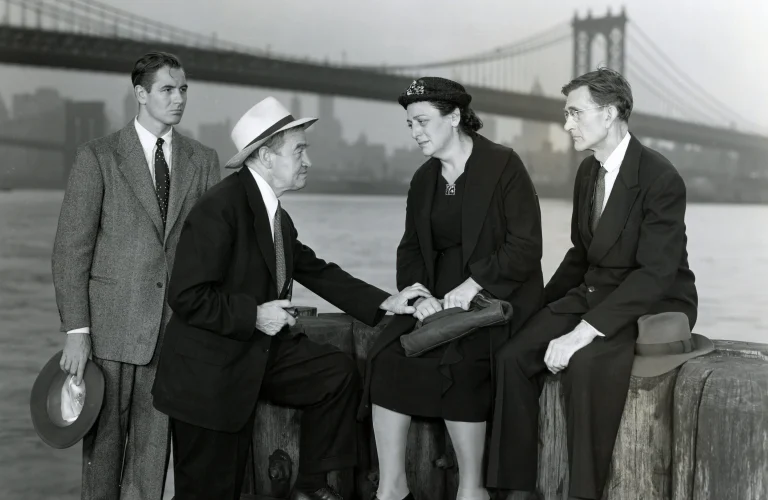10 Best Jack Nicholson Movie Performances: Few actors can both exemplify the artistry of acting and glamour of celebrity superstardom as Jack Nicholson. Having started his career in various Roger Corman films like The Cry Baby Killer (1958) and The Wild Ride (1960), he was known as a B-movie actor for many years until his breakout role in Dennis Hopper’s Easy Rider (1969). An immaculate series of roles followed, including Five Easy Pieces (1970) and One Flew Over the Cuckoo’s Nest (1975), earning him comparisons with Marlon Brando and James Dean in his depiction of male outsiders through naturalistic Method acting.
Since the 1980s, the counter-culture hero increasingly became a figure of A-List royalty, where he played wayward romantic leads in Terms of Endearment (1983) and Heartburn (1986), racked up Oscar nominations with astonishing regularity and gained a more youthful fanbase with his iconic performance as the Joker in Tim Burton’s Batman (1989).
Critics say the latter half of his career was patchier than the first, and that occasionally there were signs of complacency as he phoned in overly familiar performances with recurring mannerisms. He was extremely prolific until 2010 and has certainly starred in as many bad films as good ones, but often Nicholson’s singular style makes even some of his weakest films more watchable. Here we present some of his best performances:
10. The Witches of Eastwick (1987)
It’s fair to say that somewhere between his mad turn in The Shining (1980) and his even madder role as the Joker in Batman (1989), Jack Nicholson’s dramatic range narrowed as he embraced his image as the wild man of Hollywood more frequently than ever before. Those trademark jutting eyebrows and his Cheshire cat grin are showcased to the excess in his performance as the ‘horny little devil’ Daryl van Horne.
The mysterious Daryl alternates between silly and sinister as he seduces each of the three titular three witches (Cher, Susan Sarandon, and Michelle Pfeiffer) and unleashes chaos both libidinal and supernatural in the picturesque town of Eastwick. George Miller’s adaptation of John Updike’s novel is imperfect – what it concludes about gender roles and sexual mores in the repressed, Reaganite suburbs is muddled – but it’s elevated by Nicholson at his slimy, sybaritic best. Here is #10 in the list of Best Jack Nicholson Movie Performances.
9. Hoffa (1992)
As great as Al Pacino was as Jimmy Hoffa in Martin Scorsese’s The Irishman (2019), Nicholson’s portrayal of the labor union boss in this 1992 biopic is more accurate. He replicates Hoffa’s external markers with a fake nose, a bristling haircut, and a Midwestern accent, but he also conveys the inner tenacity that drove Hoffa to become America’s second most powerful man. David Mamet’s screenplay flits back and forth through time, illustrating how the tireless Hoffa schemed and cajoled his way from a grassroots organizer to the presidency of the Teamsters’ union, and how his schmoozing with organized crime led to his notorious disappearance in 1975.
Of all the decade-spanning scenes, the standout is a re-enactment of a Congressional hearing into his union’s affairs, with Kevin Anderson playing Robert Kennedy. Nicholson dominates the scene, just as the real-life Hoffa did, standing firm and deflecting the committee’s accusations with such bullish showmanship that even the future Attorney General looks intimidated.
8. The King of Marvin Gardens (1972)
Bob Rafelson’s follow-up to Five Easy Pieces focuses on two brothers, the neurotic David (Nicholson) and the eccentric Jason (Bruce Dern). David sees himself as a tortured artist, using his position as a late-night radio broadcaster to deliver introspective (but factually ambiguous) stories about his life, which is the temperamental opposite of Nicholson’s previous roles. It’d be easy to see Nicholson as Jason, who is a huckster who charms and blusters his way through phony schemes, but Nicholson is just as adept at playing a more anxious kind of fraudster.
The opening sequence is likely the best: in an extreme close-up and against an inky black background, David tells the harrowing and suspenseful story of how he and his brother witnessed their grandfather collapse to his death after he repeatedly coughs and chokes on a fishbone. Moments later, the film cuts to David commuting to his home, where he sees…his grandfather, alive and well. He mocks his grandson with fake coughing. “If you don’t like my stories,” he drawls, “you don’t have to listen to my program.” Here is #8 in the list of Best Jack Nicholson Movie Performances.
7. The Crossing Guard (1995)
In between the campy Wolf (1994) and Mars Attacks! (1996), Nicholson played one of his most disturbed characters in Sean Penn’s somber and little-seen sophomore feature The Crossing Guard. Freddy Gale, whose daughter was killed in a hit-and-run incident, has spent six years struggling with the trauma and seeks solace in sex and alcohol addiction. With his slicked-back hair and open-neck shirts, he visually recalls Cosmo from John Cassavetes’ The Killing of a Chinese Bookie (1976) but he manages to be even skeevier; you can practically smell the booze and perfume from numerous clip joints whenever he appears.
Gale’s psychological severity is pushed to its limits when he finds out that John Booth (David Morse), the drunk driver, is released from prison and Gale vows to kill him. Gale might be more frightening here than Jack Torrance was in The Shining (Nicholson’s other, more famous alcoholic with violent compulsions) from 15 years prior, as the histrionics are toned down. Anjelica Huston, who was Nicholson’s real-life ex-girlfriend, also stars as Gale’s ex-wife Mary. The scene where the two characters sit in a diner and discuss the breakdown of their relationship is an enthralling one, where reality seeps through into fiction.
6. Chinatown (1974)
Roman Polanski’s none-more-black homage to film noir may be set in 1937 but Jack Nicholson’s performance as Jake Gittes feels like an updating of the detective archetype for the 1970s. Sam Spade from The Maltese Falcon (1941) and Philip Marlowe from the Big Sleep (1946) were men who lived by codes of honor, which were either instinctive or fabricated out of self-preservation, as they perused into the seamy underworlds. Gittes has a breezier charm and a smutty interest in adultery cases. He also falls for and sleeps with his client; something that Spade and Marlowe would suppress themselves from doing (or at least not until the case is solved).
Also By Roman Polanski: The Pianist (2002): Horrors Of The Holocaust
And while Gittes is smart, he’s less hard-boiled than the Bogart characters: he gets regularly tricked or physically weakened by others, and he has a bandage over his nose for a significant portion of the film to underline his vulnerability. If Raymond Chandler saw Marlowe as a ‘shop-soiled Galahad’, Polanski and Nicholson depict a private investigator for the post-Watergate age; a knight who is unable to slay the dragons of political and moral corruption that ensnares and poisons everything in their reach. Here is #6 in the list of Best Jack Nicholson Movie Performances.
5. Easy Rider (1969)
Billy (Dennis Hopper) and Wyatt (Peter Fonda) are great to watch but it’s half an hour into Easy Rider when their show is stolen by the film’s most wonderfully realized character, George Hanson. (Nicholson) From the details sprinkled here and there, you can infer a backstory: a genteel but wayward Texan who’s a bit of a dweeb, was born into wealth but is a hippie at heart, who likely isn’t close to his conservative family but he still uses his political connections to get out of trouble.
Related: Addiction And Film: A Complex History
From the way he flicks a bit of hair off the tip of his tongue to the rubbing of his finger down his face and neck, it’s a role rich in beautiful gestures which straddle the line between naturalistic and the balletically purposeful; it’s comparable to Marlon Brando at his most expressive. Despite having barely any screen-time, it was enough to nab an Oscar nomination and helped catapult Nicholson to stardom.
4. Five Easy Pieces (1970)
The iconic ‘no substitutions’ scene, in which in the sardonic Bobby Dupea battles with a waitress for a chicken salad sandwich, is misleading if seen out of context. One may think Dupea is an early Nicholsonian antihero; a blue-collar rebel to cheer on as he challenges stifling authority figures. There’s more to Dupea than this scene suggests. He is the scion of a family of musicians, and when he visits their secluded home to see his dying father, we find Dupea is just as uncomfortable in rooms furnished with leather-bound books and grand pianos as he is in the bowling alleys and greasy spoon diners of Bakersfield. There’s nothing about his relatives, his girlfriend (Karen Black) or his co-workers at an oil rig which deserves his disdain, but his sourness masks his feelings of self-dissatisfaction.
He’s less like an Angry Young Man and more like the Beatles’ Nowhere Man. His decision to leave his bourgeois family to choose a life of drifting from one low-paid job to another indicates his perennial uncertainty and about his wants and needs. Nicholson is less frequently explosive here than in later films; Dupea prefers to flee from his problems rather than to confront them. He attempts a mute expression when he listens to other people’s inane blather, but it’s always clear he’s digging his heels into the carpet. “I move around a lot,” he explains in his final scene with his father, “not because I’m looking for anything really, but ’cause I’m getting away from things that get bad if I stay.” Here is #4 in the list of Best Jack Nicholson Movie Performances.
3. About Schmidt (2002)
Alexander Payne’s film is like an inverse Five Easy Pieces. Unlike the restless Bobby Dupea, the 66-year-old Warren Schmidt has successfully held down one job, one marriage and one comfortable, middle-class existence in which nothing exciting has ever occurred. Nicholson, who once had such a youthful presence and gleaming smile, plays Schmidt with a surprising frailness and a wilting frown; he often enters a room looking momentarily confused as if he’s forgotten why he’s there. After Schmidt retires and his wife (June Squibb) suddenly dies from a blood clot, he undertakes a long road trip to attend his estranged daughter’s wedding and to recover meaning in his life.
As in all road trip movies, it’s not about the destination but what Schmidt encounters on the way that ends up revealing more about his character. There are many, many scenes where Schmidt steps out of line – such as when he tries to persuade his daughter not to marry her fiancé, and when he patronizingly cries, “I’m talking to you, young lady!” as she walks away – but he never loses our sympathy as it’s clear his coarseness always stems from his fears of loneliness and loss of control. Much like in the work of the Coen brothers, everyone from the lead to the kooky supporting cast might have been cartoonish and broad on paper, but the material is refined by the actors who succeed in unearthing what’s recognizably human.
2. One Flew Over the Cuckoo’s Nest (1975)
There is plenty to dislike about Randle McMurphy. He’s snarky, volatile, has committed statutory rape, and he’s feigning madness so he can serve time in a psychiatric hospital instead of jail. But the greatness of Jack Nicholson’s signature role is in how he instills warmth and even pathos in such a character – and makes us believe McMurphy is a natural leader, a man who can befriend both mental patients and security staff alike, and can have such a salubrious effect on the most helpless of his peers.
Similar to Best Jack Nicholson Movie Performances: 15 Best Films Set In A Mental Asylum
Nicholson’s vivacity is a huge part of why Miloš Forman’s adaptation of Ken Kesey’s novel soars; even when the book’s psychedelic trappings are eschewed, even when the hospital’s lonely souls are filmed through a dreary, low-lit documentary texture, it remains a rousing and reinvigorating work of cinema. Today, it feels neither like a work of counter-cultural modishness or a study of outmoded psychiatric methods, but a film which affirms the undying need for individual expression within institutional confines. Here is #2 in the list of Best Jack Nicholson Movie Performances.
1. The Shining (1980)
One of Nicholson’s most divisive performances in a very divisive film. Stephen King always disliked Stanley Kubrick’s adaptation of his original novel: “As far I was concerned, when I saw the movie, Jack was crazy from the first scene.” Both the film and the book focus on the mental disintegration of Jack Torrance, an aspiring writer who works as an off-season caretaker for the isolated Overlook hotel. But they have different aims. For King, Torrance is a good man, albeit a recovering alcoholic with historic anger issues, and it’s only because he is possessed by the hotel’s demonic forces that he terrorizes his wife and son. For Kubrick, Torrance remains a damaged individual who’s already teetering on the edge of madness; the hotel’s ghosts are merely nudging him until he turns murderous.
In Nicholson’s characterization of Jack Torrance, he’s selfishly focused on his work, saddled with a family he often doesn’t even feign interest in and is disturbingly ill-tempered. When his wife Wendy (Shelley Duvall) interrupts him from his writing, Torrance snaps at her and tries to use his wolfish grin as if to soften his anger. But it’s clear from his instant fury and Wendy’s subservient response there is a history of relational abuse which is not exactly in the distant past. It’s this emphasis on the psychological rather than the supernatural that makes his succumbing to cabin fever and the Overlook’s ghostly influence so potent.
Related: Doctor Sleep (2019): A Shining Sequel
Nicholson’s love-it-or-loathe-it style reaches its apex in The Shining’s final act when Torrance has regressed entirely. From his curled lip and loud grunting to the way he limps through the hotel corridors with an arched, humped back, this is Nicholson at his most animalistic, and it feels not only like the most logical endpoint to his character but a purposeful darkening of Nicholson’s star image. Whereas Easy Rider was about the celebration of non-conformity, and One Flew Over the Cuckoo’s Nest was about the implications of Nicholson’s ‘mad’ persona, and the Bob Rafelson films were about the loneliness underpinning it, here the actor’s unpredictability is used to create one of horror cinema’s greatest monsters.

